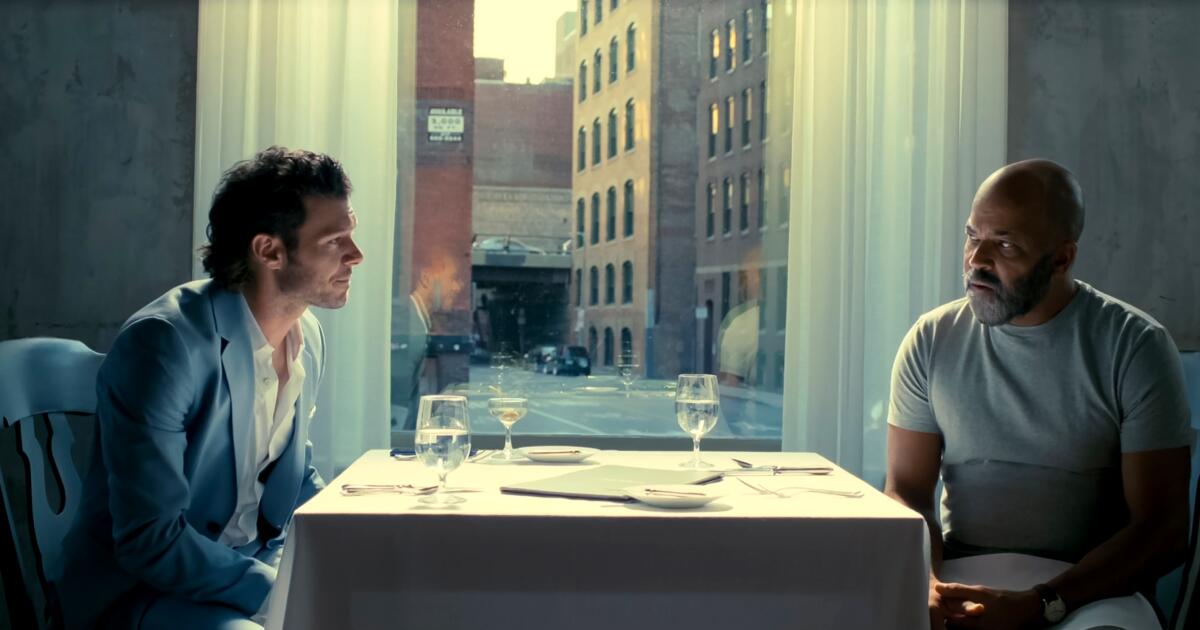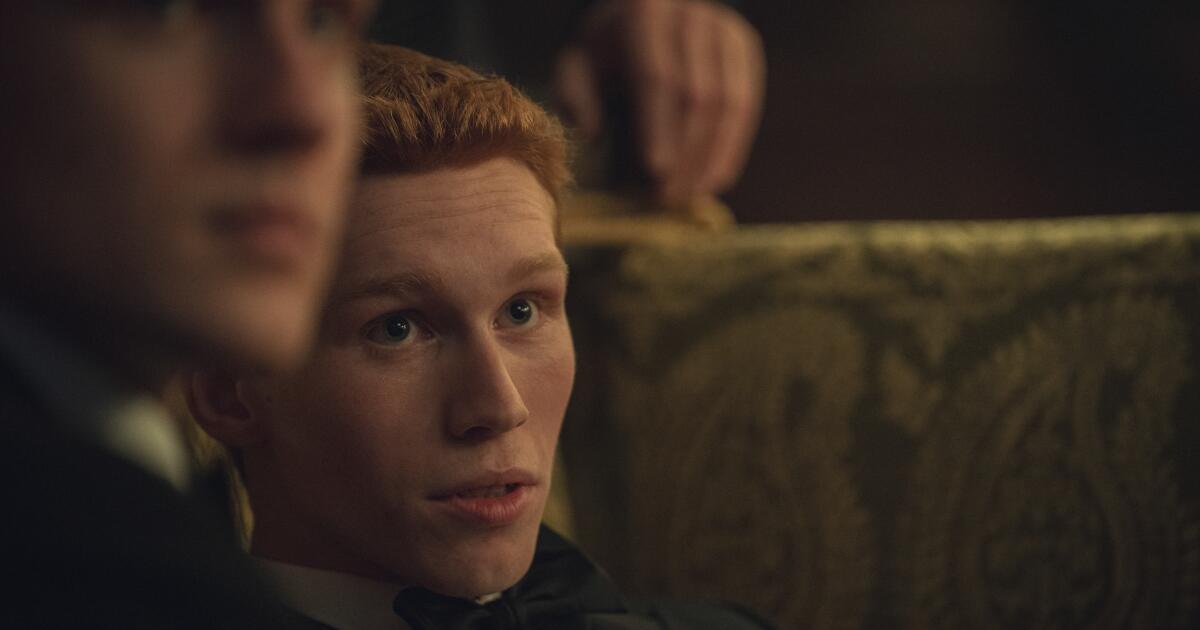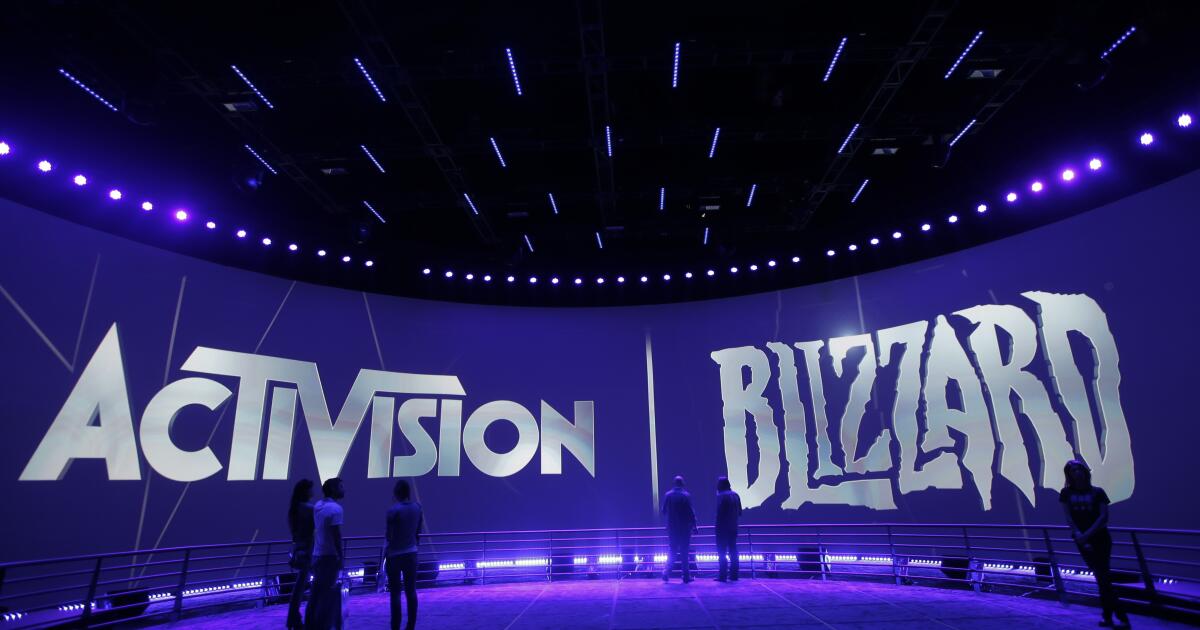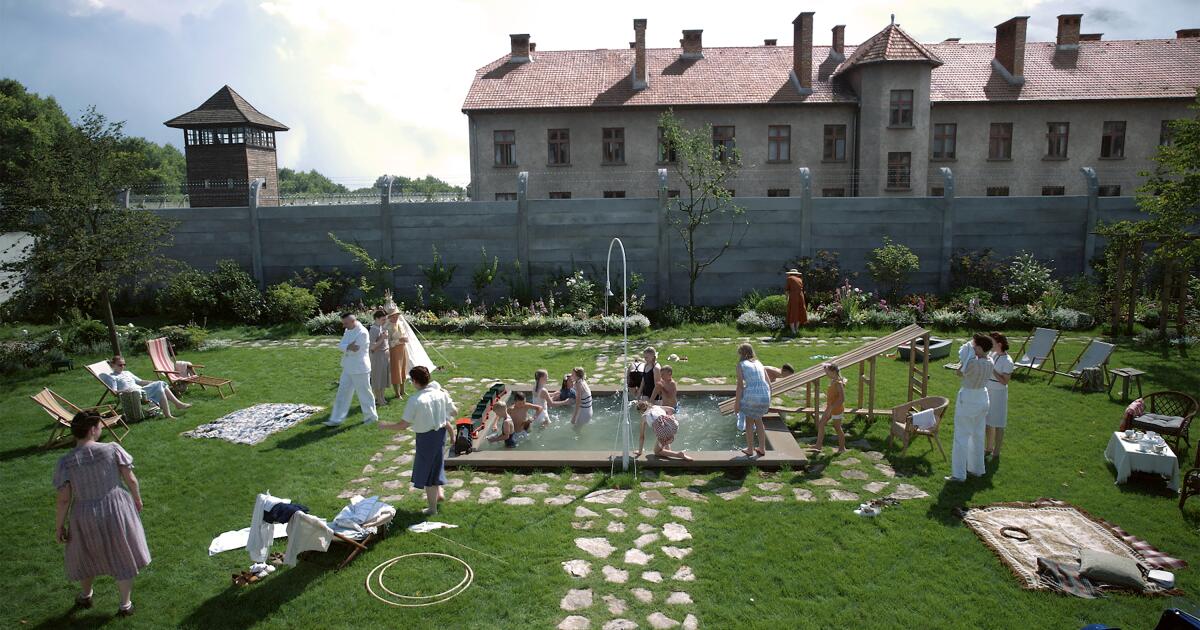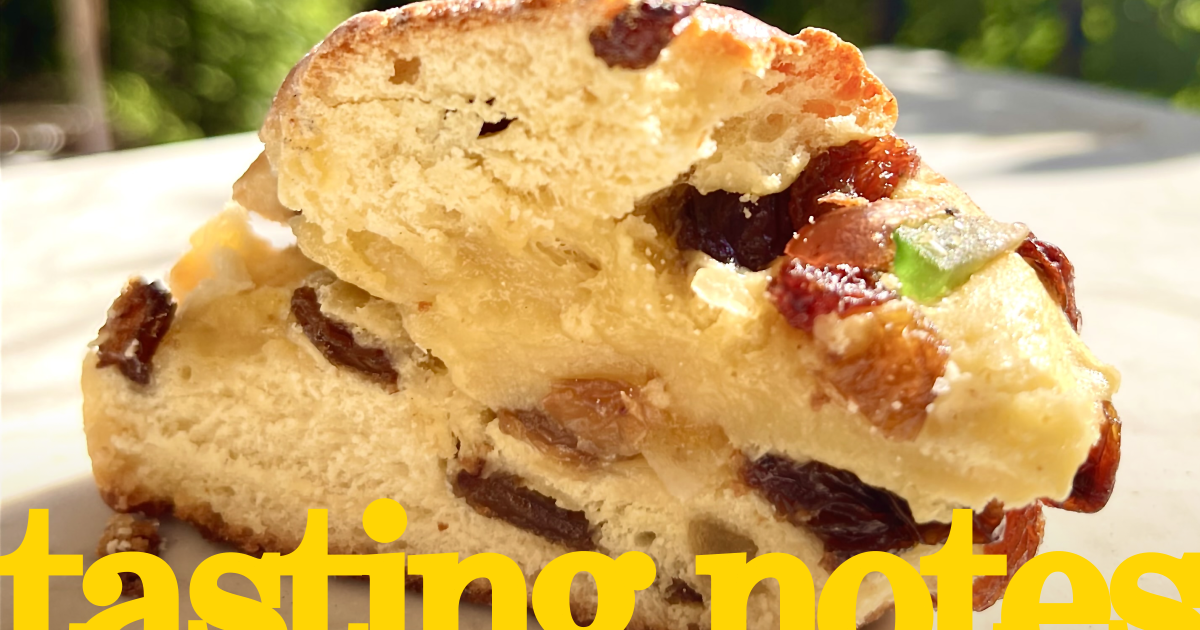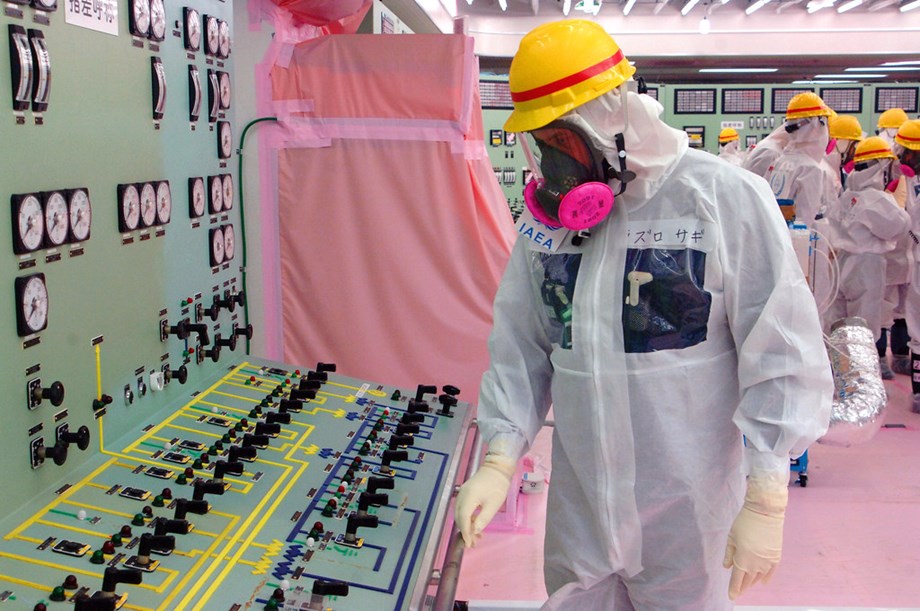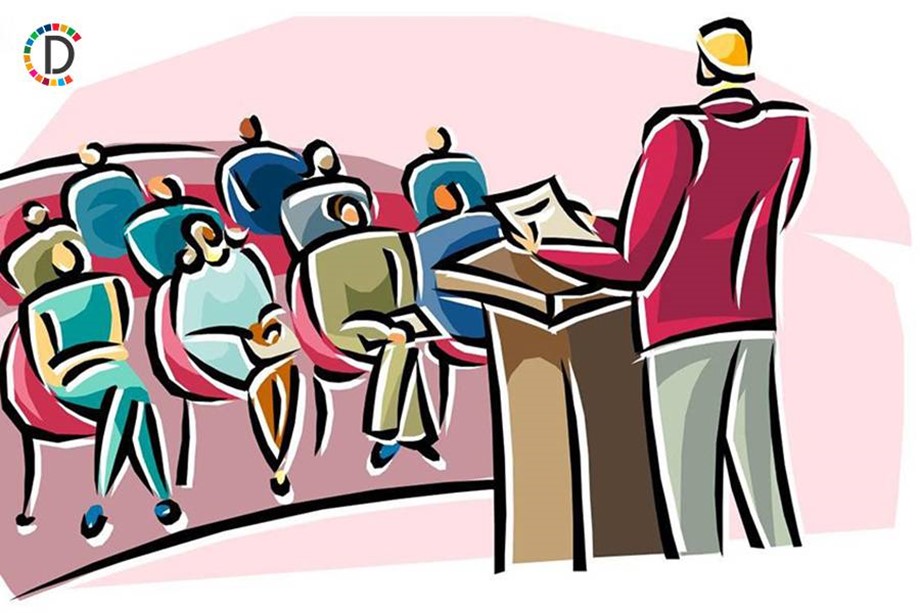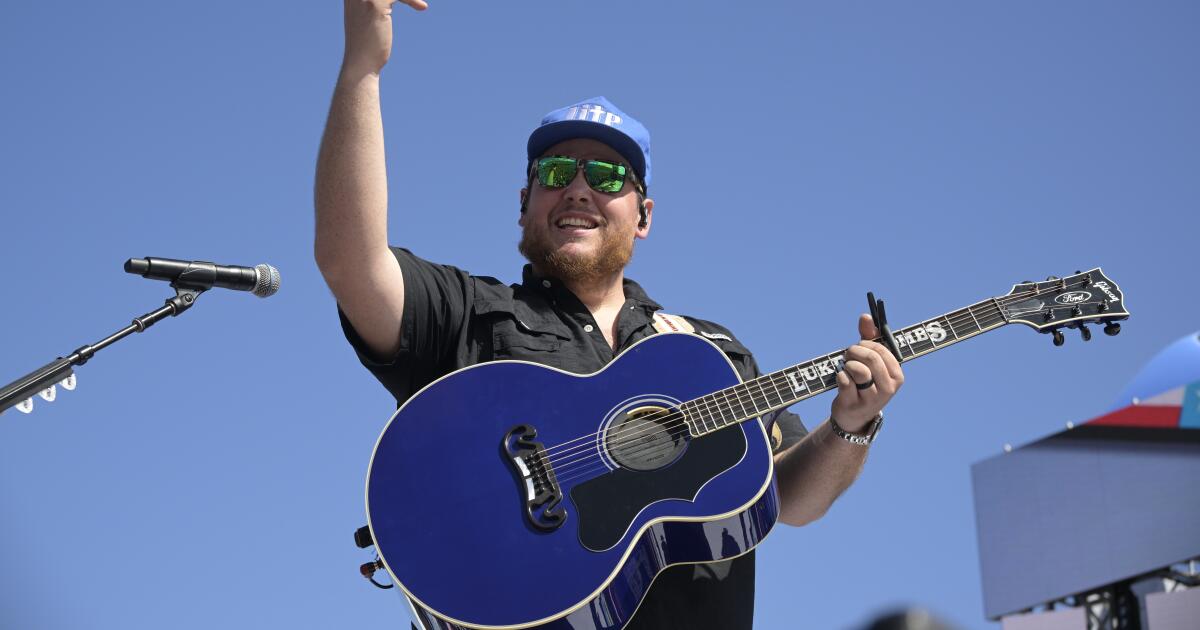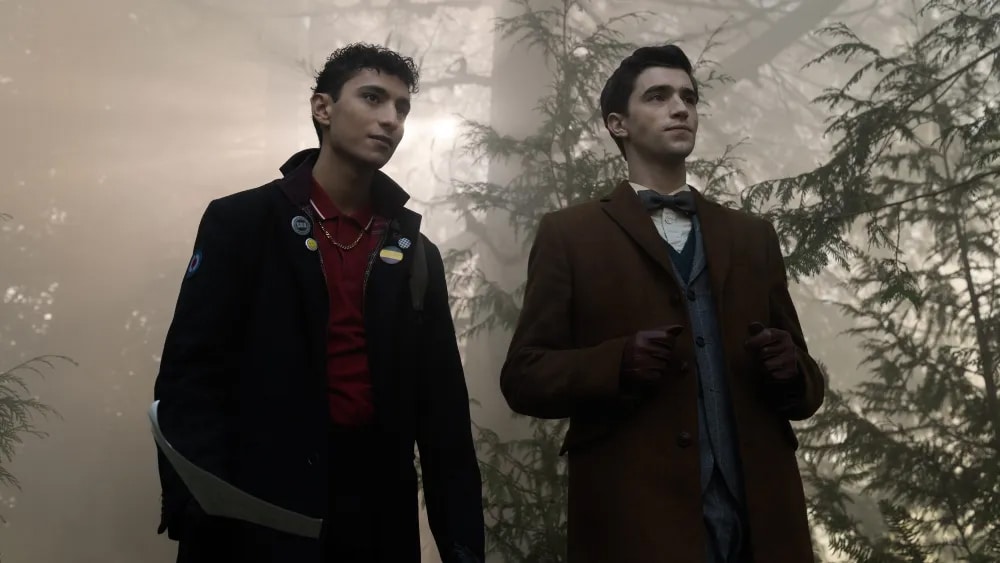
‘Daisy Jones & the Six’ Showrunner on Song Switches, Fake/Real Concerts and Shutting Down the Sunset Strip
Logo textDaisy Jones & the Six may be the most-read-about fake band in history. Taylor Jenkins Reid’s 2019 novel about a fictional seventies rock group of the same name has sold well over a million copies and has a bonkers 940,000 ratings on literary social media hub Goodreads — so the pressure to deliver a TV version is a bit higher than with most adaptions.
Fortunately, co-showrunner Scott Neustadter is no stranger to high-stakes adaptations. The Oscar-nominated screenwriter behind The Disaster Artist previously penned big-screen versions of YA smashes The Fault in Our Stars, The Spectacular Now and Paper Towns with writing partner Michael H. Weber. None of his previous projects, however, prepared him for the rigors of casting actors with no singing experience and working with a murderer’s row of songwriters to produce an original album for Daisy Jones & the Six — the latest in what’s become a regular drumbeat of book-to-TV adaptations from Reese Witherspoon’s Hello Sunshine. Now, with the first three episodes streaming on Amazon, Neustadter spoke with The Hollywood Reporter about the more lavish aspects of production, the benefit of its delayed road to filming and the one thing he’s concerned might irk readers.
Related Stories
How much did this cost?
I don’t know! (Laughs) I know what it was going to cost before COVID. Now, I have no idea.
It looks expensive. What was the most daunting set piece?
When we were in New Orleans, we took over Tad Gormley Stadium and transformed it into Soldier Field. But there was no stage or anything to hold a concert. So, the production designer and her team built a massive stadium concert stage. The stagecraft of it was so impressive. It was as if we were putting on a huge concert. Then, the day that they built it, Sam Claflin came down with COVID and we couldn’t use it. I think they had to break it down and rebuild it a week later.
We’re speaking just a few days before the premiere, years into this process, how would you characterize your nerves about potentially pissing off the many, many fans of this book?
Book fans are smart. You’re better off not pissing them off, because they’re usually right. I was really grateful for having gone through The Fault in Our Stars. When we started making that, the book hadn’t even been published yet — and then obviously became this runaway success. People were tattooing lines on their bodies. I was getting a lot of, “You better have this line, or we’re going to find out where you live!” on the internet. You have to have faith that if you started out as a fan first, the book is the North Star. Don’t make changes that would piss yourself off. We don’t bring the authors in to show them how the sausage is made, but they’re always the first readers of our adaptations. I think that the bigger swings we take are thoughtful and the audience will go for it. But you’re not going to be able to capture everybody’s favorite thing. And we didn’t use the lyrics that Taylor had, which I know are important to some people…
Well, you can’t really reverse-engineer songwriting like that.
That’s not how good songwriting works, for sure. That was a strategic decision. If we were going to get these songwriters to contribute music and to write within the strict parameters we needed them to, we couldn’t tell them that they had to use previously written lyrics. You can’t just ask for a melody when you’re talking to Blake Mills, Phoebe Bridgers, Jackson Browne and Marcus Mumford.

The show is coming out in the very crowded pre-Emmy voting corridor. How much have you talked about the obstacles of making sure this actually gets seen?
This is sort of my first go-around with TV, and I’m learning a lot. It does feel like we have a built-in audience, which is lovely, and Amazon is working to get the word out. The cadence of the release is really interesting. We’re doing three episodes the first week, three the second week, two the third week, and then two the fourth week. We’re trying a binge/not-binge version to own the month of March. The episodes do make sense in that cadence, so we’ll do what we can and then hope that word of mouth takes over. As a TV fan, I want to watch the thing that everybody’s talking about. Hopefully we can get into that conversation.
A traditional binge drop doesn’t seem ideal for this show.
I also like patience. I like waiting. I like participation. That’s why I don’t know if reviewers are like, “Oh, I got to watch 10 hours of TV this weekend.” And it just feels like, I don’t know, makes me nervous.
Tell me about the pros and cons of working with and around the book’s oral history format.
It’s mostly fun, because the frustrating part would just be that there’s a lot of gaps. There’s a lot of story that’s not there. But we got to invent those things and write the scenes that were only alluded to in the interviews. I loved the mockumentary kind of structure. I loved that it’s being told through memory, because you can never trust the memory. We had to make a decision pretty early on that what we’re watching in the flashbacks is what happened. It’s not anyone’s interpretation of events. It’s not any anyone’s point of view. It is real. So if someone says, “I never went to jail,” you cut to them in jail and know that they’re not telling you the truth. The book could get away with not answering some questions that I think we had to answer.
You shut down the Sunset Strip and filmed at a lot of places familiar to this time period. How’d that influence the show you ended up with?
Man, we shut down the Sunset Strip. We also shut down the PCH. You get 45 minutes to get a shot, because you can’t block the road for that long. It was like making a Michael Bay movie. We really wanted all the locations to be as authentic as we could make them. That meant filming in the places where this shit went down — The Whiskey, The Troubadour, Sound City Studios, the Riot House pool, Formosa Cafe. Most of them don’t look like they used to, but we inhabited all the places that we were pretending to be. Instead of shooting in a sound stage at the Paramount lot for the studio recording sessions, we actually shot where they recorded the first Fleetwood Mac album just to get the ghosts. I think it translates, and I know the actors felt it.

Speaking of the actors, did you have any reservations in the casting process about not having fully-baked singers from the start?
If we had gone on time and shot in April of 2020, there would’ve been a lot of movie magic involved in lots of things. It would’ve been a very different show. But because we had 18 months that they didn’t expect to have to get into shape, they worked every single day for those 18 months. So, by the time we got to shooting, we were putting them on a microphone. Lauren made them do a concert for 50 people before cameras rolled to see if they could be comfortable and just do it. We felt really good about where we were. There were no reservations whatsoever going into September of 2021, but that would not have been the case in April of 2020.
What did the concert look like?
It was for a lot of people who worked on the show. People brought their daughters who were fans of the book. But it was a real show. They had a set list. They had their instruments. They got into costume, went up on stage and played as if they were a band. We filmed it, so that we could play it back for them. It was really instructive and I think it proved to them that they could do it. They had to just crush it on their own, and it prove that they could do it. From there, their confidence just went through the roof.
How does it feel having the music finally out there after getting these songs done three years ago?
We’ve been the only ones listening to them. Like, my kids know every word to every song. And it’s so funny that people are going to finally hear it. It’s bizarre to me that it is on Spotify. It used to be on my Apple Music and I was terrified I was going to accidentally press the wrong button and release it. But it only ever existed in Box links on our computers. To see it on Apple Music or on Spotify is bizarre.
Obviously this is not about Fleetwood Mac, but the influences are clear. Is anyone making some of ovation to see if Stevie Nicks might watch this?
If she watches it, I would love to hear what she thinks. I don’t know if she knows about the book. I mean, it’s definitely not her life story or anything. But it should bring back a lot of memories, maybe, of a time and a place. Hopefully they’re positive ones and she appreciates what we were going for with this.
Who from the music industry did you talk to?
We had a revolving door of people that agreed to talk to us. Kim Gordon from Sonic Youth was in the room for a really long time. She was in a band with her husband, so could talk about relationships and music in that way. We had an afternoon with Bernie Taupin, talking about collaboration and songwriting and that kind of thing. We sat with Nancy Wilson, talking about being a woman in rock in this moment and being in a band with her sister. We also talked to addiction experts, and a lot of people who lived in the scene. They’d be telling us stories about how they’d go to Mama Cass’ house and hang out. None of us have ever had any of these experiences, so that was a dream.
Interview edited for clarity.






















